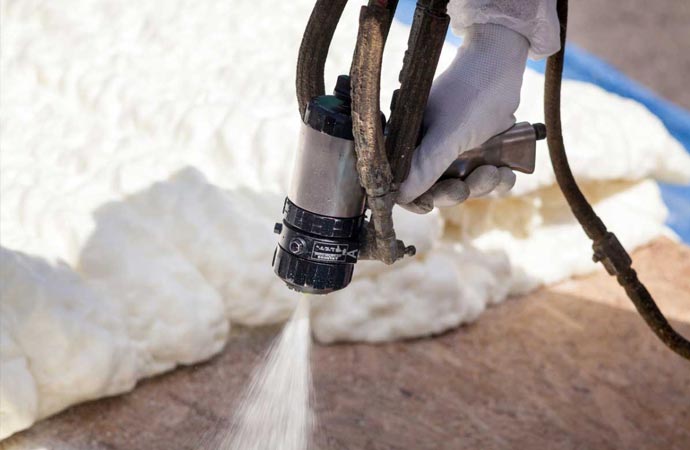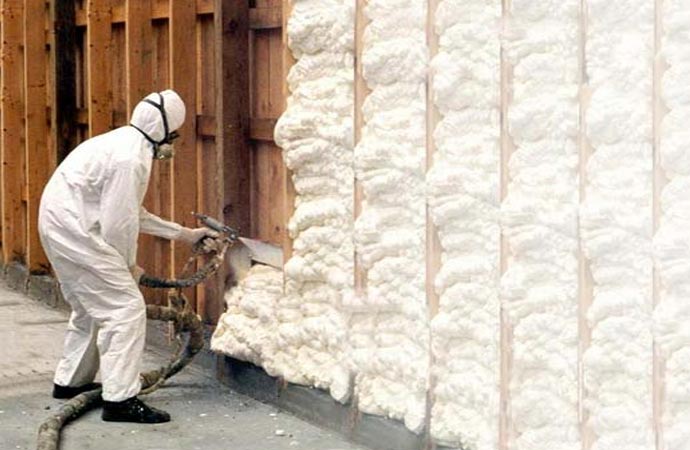Spray Foam or Rigid Insulation in CT & Westchester County, NY?
Remember when home insulation was mostly associated with a pink panther? Today, homeowners, contractors and building energy scientists have numerous insulation options and forms. Spray foam vs. rigid insulation is a popular differentiation. Closed-cell spray foam requires two components to be mixed at the application nozzle, and rigid foam insulation boards come in different thicknesses.
Both are useful for improving home energy performance, but it can be difficult to decide between spray foam vs. rigid insulation for a particular application, space, insulation need or other requirement.
Call Superior Spray Foam Insulation today at 203-442-9171 to learn if you require spray foam vs. rigid insulation, or a different insulation type altogether.
We service Abington, MA; Armonk, Bedford, Buchanan, Crompond, Dobbs Ferry, Elmsford, Harrison, Irvington, Millwood, North Salem, Pelham, Purdys, Rye, Somers, Tarrytown, Waterford, CT, Yonkers, Yorktown Heights and cities throughout our CT/NY/RI service area.
Superior Knows Pros/Cons of Insulation Types in Connecticut
Spray Foam vs. Rigid Insulation

Spray Foam Pros:
- Provides both insulation and air sealing; air sealing is excellent because the foam expands to fill gaps and cracks.
- High R-value -about R-7 per in. depending on the formulation.
- Speedy installation. Foaming can be done in a fraction of the time it takes to cut, fit, and seal rigid board insulation.
- Once cured, spray foam insulation stays in place; it won't shift, settle, or fall out of place.
Spray Foam Cons:
- Messy; overspray can deposit foam where it must be removed.
- Respirators and protective clothing must be worn during installation.
- If the area being insulated cannot be isolated from living space, occupants must vacate premises until foam cures - typically two hours.
- Temperature-sensitive; cold temperatures can cause problems with foaming action or curing.
- R-value can degrade slightly over time.
Spray Foam vs. Rigid Insulation

Rigid Pros:
- Provides both insulation and air sealing, provided that seams between foam panels are sealed with tape.
- Less messy than spray foam.
- Different thicknesses are available to suit different applications & R-value requirements.
- Panels are easy to cut and can be installed at any temperature.
- Safe handling; no harmful emissions during installation.
- Best installation for insulating crawl space and basement walls.
- Some rigid foam panels include a radiant barrier for additional energy savings.
Rigid Cons:
- R-value varies based on the type of rigid foam. It can be as low as R-3.8 per in. or as high as R-8 per in.
- More time-consuming installation than spray foam in some (but not all) applications.
- Sometimes single-component spray foam must be applied around the edges of rigid foam to seal and hold the panel in place.
Trust Superior For Spray Foam vs. Rigid Insulation Options in Connecticut
Superior Spray Foam Insulation is here to assist you with all of your insulation-related needs, including spray foam vs. rigid insulation. We provide service to both residential and commercial clients. If you are unsure if you need attic, garage or other insulation, ask our team of experts. We can recommend the kind of insulation material that best fits your requirements or space.
Besides spray foam vs. rigid insulation, we provide services for roofing, siding, window replacement, and more. Call Superior Spray Foam Insulation today at 203-442-9171 or contact us online to learn more about all of our services.

